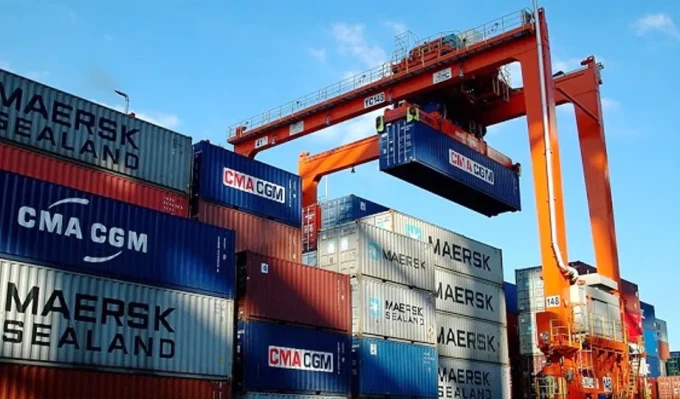Kenyans want to pay taxes as long as the services we get are commensurate to the taxes we are paying. We shouldn’t normalise stealing as taxation. When our taxes are not being used to give us services that is ‘steaxation’ – stealing in the name of taxation. Period.
Paying taxes, when used for the greater good, can indeed be seen as a patriotic sacrifice and a means to sustain a country. However, the frustration arises when the public doesn’t see value in return for that sacrifice. Issues like malfeasance, mismanagement, and corruption erode trust in the systems meant to improve healthcare, education, and infrastructure. These are critical pillars of a nation’s progress, and when they fail, it can lead to widespread disillusionment. The call for greater accountability in how taxes are used is a legitimate and necessary demand for a better future.
Taxation is one of the most fundamental aspects of governance, serving as a key mechanism for funding public goods and services. Paying taxes is often framed as a civic duty, a way of contributing to the development of one’s country. However, in Kenya, this duty has become a source of frustration for many citizens. The issue is not in the paying of taxes, but in the lack of value derived from them. With sectors like health, education, and infrastructure crumbling due to mismanagement and malfeasance, Kenyans are increasingly questioning the integrity of the country’s tax system and its capacity to deliver.
In principle, taxation is an act of solidarity. By contributing a portion of their income, citizens help to fund essential services like healthcare, education, transportation, and security. These are services that no individual could easily provide for themselves, but through collective contribution, they become accessible to all. This is the social contract between the government and the people. The government promises to use the taxes collected to better the lives of its citizens, providing services and infrastructure that promote well-being and economic development.
> How Access to Finance is Changing Lives in Africa
The introduction of levies like the Housing Levy, for example, is based on this concept. The levy is designed to provide a solution to the country’s housing deficit, by collecting funds that will enable the government to construct affordable housing for citizens. On paper, this is a brilliant idea. The housing crisis in Kenya is a pressing issue, particularly in urban areas where real estate prices are beyond the reach of many. By pooling resources through a levy, the government could, in theory, address this problem while creating jobs in the construction industry.
But the reality is far more complicated, and the optimism surrounding taxation and levies is often overshadowed by skepticism. The problem isn’t that Kenyans are unwilling to contribute; it’s that they do not trust the system to deliver.
Health Remains a Dream
Over the years, Kenya has witnessed a steady decline in key sectors, despite the substantial taxes collected. The healthcare system, for instance, has been in a state of disrepair. Public hospitals are understaffed and under-resourced, with frequent shortages of essential medical supplies. Kenyans often resort to private healthcare, which is expensive and out of reach for the majority of citizens.
This is especially concerning in a country where universal health coverage remains a distant dream. Billions of shillings have been allocated to healthcare over the years, yet the sector continues to deteriorate. This raises critical questions about where the money is going.
Education is another sector in shambles. While the government has made significant investments in education through programs like free primary education, the quality of learning has suffered. Public schools are overcrowded, teachers are overworked, and resources are often inadequate. The gap between public and private education continues to widen, leaving children from poor families at a significant disadvantage. These disparities contribute to the overall sense of frustration among taxpayers, who feel that the country’s future is being compromised by systemic failure.
Poor Project Management
Infrastructure, a crucial driver of economic development, also faces challenges. While Kenya has made strides in constructing new roads, railways, and ports, the quality and sustainability of these projects are often called into question. Corruption and poor project management have led to inflated costs and substandard work. The scandal surrounding the Standard Gauge Railway (SGR) project is a prime example of how infrastructure investments can go wrong. While the SGR was touted as a transformative project, questions have emerged about its long-term viability and the enormous debt burden it has placed on the country.
At the heart of Kenya’s taxation paradox lies the issue of malfeasance. Corruption has been a persistent problem in Kenya’s public sector, affecting every level of governance. From inflated procurement deals to misappropriated funds, the country loses billions of shillings annually to corrupt practices. This has created a deep sense of mistrust among citizens, who feel that their hard-earned money is being stolen by those in power.
The government’s inability or unwillingness to tackle corruption head-on exacerbates the problem. Even when scandals are exposed, the lack of accountability is staggering. High-profile officials implicated in corruption cases rarely face serious consequences, and many continue to hold influential positions. This lack of justice reinforces the perception that paying taxes is akin to throwing money into a black hole — with little hope of it being used for its intended purpose.
Taxation, when handled properly, is a patriotic act that contributes to the common good.
For Kenya to move forward, there must be significant reforms in how taxes are managed and allocated. Transparency in public finance management is crucial. Citizens should have access to clear information about how their money is being spent, and those responsible for misusing funds must be held accountable. The government must also prioritize the strengthening of oversight institutions like the Ethics and Anti-Corruption Commission (EACC) and the Office of the Auditor-General, ensuring that they are empowered to carry out their mandates without political interference.
Moreover, the government needs to restore public confidence by delivering on its promises. Projects like the Housing Levy should be implemented with transparency and efficiency, showing citizens that their contributions can result in tangible benefits. Only then will Kenyans be willing to make the necessary sacrifices without feeling cheated by the system.
Taxation, when handled properly, is a patriotic act that contributes to the common good. But in Kenya, the lack of value derived from taxes due to malfeasance and corruption has turned this civic duty into a source of frustration and anger. Healthcare, education, and infrastructure, the very systems that taxes are meant to sustain, are collapsing. For the country to reverse this trend, there must be a renewed focus on accountability, transparency, and good governance. Only then will Kenyans feel that their sacrifice is truly worth it.
Kamomonti wa Kiambati teaches English and Literature in Gatundu North Sub County.
> Effectively Protecting Consumers of Digital Finance Requires Absolute Transparency
> A New Ruto Emerges From the Ashes of Finance Bill and Adani Deals













Leave a comment